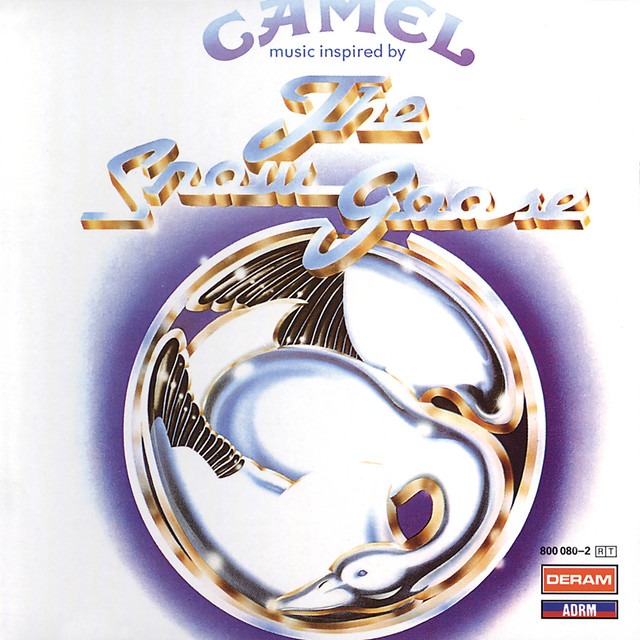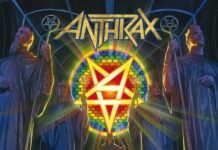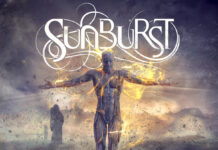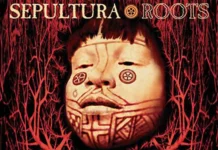For a prog band that has released one of the best concept albums ever, the Surrey four-piece, CAMEL, seems to have remained the unsung heroes of 1970s prog for no good reason whatsoever. Then again, the band was never about the excess of YES or KING CRIMSON, nor the theatrics of Peter–Gabriel-era GENESIS. The band focused on writing sublime symphonic prog without making too much of a fuss about it. The conceptual affair I’m referring to was their third studio album released on April 25th, 1975, via Decca. Inspired by Paul Gallico’s novella of the same name, the album title was originally stylized as “The Snow Goose,” although it was later altered to “Music Inspired by The Snow Goose” in order to accomodate legal protests by the author; the lyrics were originally meant to feature snippets based on the novella but this idea was also abandoned due to copyright objections. Likewise, the story notes were removed from the back cover, following the lawsuit from Gallico. So, the album features no lyrical vocals whatsoever and, instead, is comprised of 43 minutes of instrumental prog that tells the story without words – and it tells it so magnificently that this album proved the long overdue turning point for the band, in terms of wider attention. However, the band’s success never turned into mass popularity like that of PINK FLOYD, GENESIS, or YES in the 1970s, albeit it earned the band the moniker of “Britain’s brightest hope” from Melody Maker. Eventually, the band went on an indefinite hiatus in the early 1980s. (The band was revived in 1991, although CAMEL has not released new music since 2002.)

What prompted the band to write such a novel-inspired, conceptual beast was the critical success of the Tolkien-inspired prog suite, “The White Rider,” on their previous album “Mirage” (1974). If there ever were one Canterbury prog outfit that truly benefitted from such a conceptual approach, it was CAMEL. The dramatic arch of the story is expertly conveyed in the songs, with the emotions ranging from subtle melancholy to happy-go-lucky, even to grim darkness on occasion. Andy Latimer‘s lyrical guitar lines and magical flute licks really shine on this album. After listening to this album, it should come as no surprise why this vintage act has been name-dropped by some of the most proficient contemporary prog overlords from OPETH‘s Mikael Åkerfelt to Steven Wilson to Andy Tillison of THE TANGENT. This conceptual effort also provided us with one of the most iconic, prog-rock flute motifs of all time in the song, “Rhayader.”
The only criticism that I’ve come across about the album has been of that gatekeeper-esque, “Is this prog?” type of rebuke, posted on those dubious online music forums of today. The usual sentiment is that, at its most relaxed and pastoral, the music sounds more like straight-up classical than prog. So? That’s the point, eh? Besides, ample riffages are resonating with the authentic Canterbury-prog aura. The more banging highlights of the album include songs such as “Migration,” “Flight of the Snow Goose,” and the ELP-like, evil stomp of “Dunkirk.” Then, “Rhayader Goes to Town” even nods toward early, “Meddle”-era PINK FLOYD. The last actual song in the selection, “La Princesse Perdue,” is often mentioned as THE song on this album, and it’s easy to see why; although it’s quite mellow, the song is a picture-perfect example of the band’s signature, instrumental lyricism.
Because of the conceptual nature of the album, some tracks are pretty short, interludes rather than proper songs. The selection is book-ended by two shorties of this sort, both entitled “The Great Marsh.” The short length does not mean that these tracks don’t slap, though. The 1-minute guitar interlude, “Sanctuary,” for example, has a nicely brooding atmosphere of the sort you could find on any OPETH album of late. Plus, the transition to the somewhat Legend of Zelda-like mood of “Fritha” is pure genius!
Shortly after its release, the album’s success led to a sell-out concert at the Royal Albert Hall with the London Symphony Orchestra in late 1975. This concert was released as part of the live double album, “A Live Record,” in 1978. Some fans seem to keep that live endeavor in higher regard, probably because of those symphonic reinforcements. Then again, you can have both of these albums, too. If I were to choose between these two, I might opt for this studio version, however, because it was the first ever CAMEL album that I bought, back in the day; I managed to salvage the vinyl from a shady second-hand record store in the early 1990s. Regardless of the format, I would say that no prog collection is complete without this album.
Written by Jani Lehtinen
Tracklist
Side One
- The Great Marsh
- Rhayader
- Rhayader Goes to Town
- Sanctuary
- Fritha
- The Snow Goose
- Friendship
- Migration
- Rhayader Alone
Side Two
- Flight of the Snow Goose
- Preparation
- Dunkirk
- Epitaph
- Fritha Alone
- La Princesse Perdue
- The Great Marsh
Lineup
Andrew Latimer – guitars, flute, vocals
Peter Bardens – organ, electric piano, piano, Minimoog, ARP Odyssey
Doug Ferguson – bass, duffle coat (to emulate goose wings flapping)
Andy Ward – drums, vibes, percussion
Label
Decca Records





